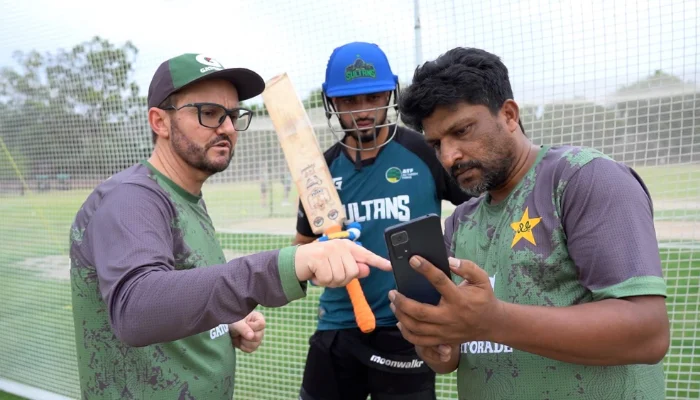Mike Hesson’s impact as Pakistan’s new white-ball head coach is already visible after a clean 3-0 sweep over Bangladesh in the recent T20I series. But Hesson says his ambitions go beyond wins and stats — he wants Pakistanis to feel proud watching their team play.
Building a Deeper Connection
In a recent PCB podcast, Hesson explained his broader vision: “More than anything, I want the people of Pakistan to feel proud when they watch their team. That’s the kind of connection we’re trying to build — something deeper, something lasting.”
Pakistan’s Rollercoaster Year
The Men in Green have had a mixed run in 2025. The year began with a 1-1 draw in the Test series against the West Indies. In Australia, they made history by winning the ODI series for the first time since 2002 but were whitewashed in T20Is.
They bounced back by winning ODI and T20I series against Zimbabwe, each by 2-1. In South Africa, Pakistan dominated the ODIs 3-0 but faltered in the T20Is and Tests, losing both 2-0.
Read: Trump’s Travel Ban Spares Athletes in World Cup and Olympics
Champions Trophy and Tri-Nation Setbacks
Pakistan hosted a tri-nation ODI series with South Africa and New Zealand, where the Kiwis emerged victorious. In the ICC Champions Trophy 2025, held in Pakistan and the UAE, the team disappointed fans by losing to New Zealand and arch-rivals India.
A tough tour to New Zealand followed, with Pakistan managing just one win in eight white-ball games.
Resurgence Under Hesson
Now back at home, Pakistan found their rhythm under Hesson, clean-sweeping Bangladesh 3-0 in Lahore. However The team’s sharp fielding, aggressive batting, and team unity reflected the coach’s early influence.
What’s Ahead
Pakistan is likely to tour Bangladesh in July, followed by a visit to the West Indies for three ODIs and three T20Is. The team’s ICC World Test Championship 2025-27 journey begins in October with a two-Test home series against South Africa, alongside limited-overs matches.
With Hesson at the helm, the focus is shifting — from just winning to playing with heart.
Follow us on Google News, Instagram, YouTube, Facebook,Whats App, and TikTok for latest updates
